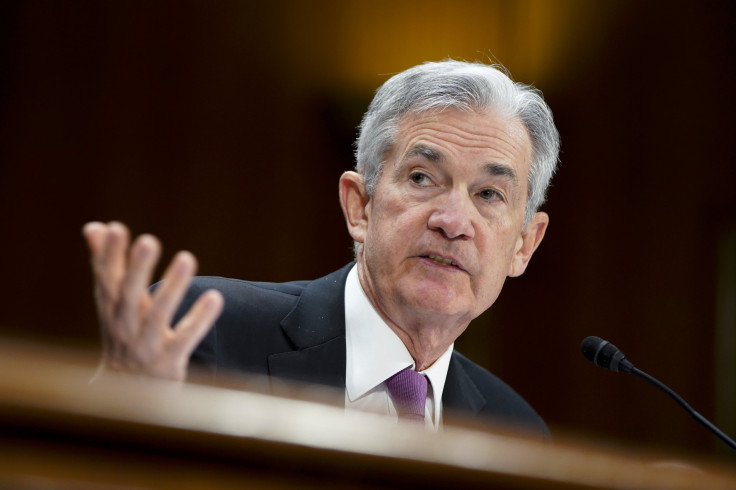Analysts See No Rate Hike In Fed’s March Meeting: IBT Poll

The Federal Reserve is expected to stick to its mantra of patience on monetary policy and leave interest rates unchanged at 2.25 - 2.50 percent at its upcoming policy meeting, analysts polled by International Business Times said.
All 31 economists polled by IBT said they do not expect the central bank to raise interest rates when it concludes a two-day meeting Wednesday. More than half of them, 16, foresee one interest rate hike later this year, while 10 do not expect any rate hike.
Two of the 31 economists expect the central bank to deliver two interest rate hikes; two economists did not provide forecasts. One economist was undecided, saying it could be either a rate hike or none.
All economists who participated in an earlier Fed poll by IBT have now reduced their expectations of the number of interest rate hikes this year.
The Fed kept interest rates unchanged at 2.25-2.50 percent at its Jan. 29-30 meeting. The minutes from the Federal Reserve’s previous policy meeting noted that a “patient” approach to interest rate hikes will be more suitable as it continues to assess the impact of various headwinds to the economy.
BMO Wealth Management’s chief investment strategist, Yung Yu-Ma, who is among the economists who do not expect a rate hike this year, said inflation will remain muted overall. “Wage growth will not filter through to an acceleration in inflation,” he said.
“The yield curve is very flat, and it would be surprising, even daring, for the Fed to force an inversion by raising short-term rates unless there were true inflation pressures building up. So far, the economy is not even consistently on the positive side of the “symmetric” inflation target,” Yung added.
The U.S. 10-year yield fell to its lowest level in 15 months to 2.59 percent. The 2-10 yield curve narrowed to 15 basis points Monday.
Mike Cosgrove, principal at Econoclast -- who too does not expect a rate hike this year -- said the economy has weakened from past quantitative tightening and rate hikes. “That past tightening of monetary policy continues to place downward pressure on the economy,” he said.
Dan Hamilton, director of economics at Center for Economic Research & Forecasting, said the extraordinary policy experimentation undertaken by the Fed during the financial crisis remained a major impediment to robust economic growth.
“Normalization of monetary policy is long overdue,” Hamilton told IBT. “The Fed should have begun a sustained increase in interest rates, a significant reduction of its balance sheet, and an end to the policy of Interest on Reserves (IOR) many years ago.”
“Alarmingly, the Fed has halted what was already a glacial pace of policy normalization. In fact, it has now become probable they will never normalize U.S. monetary policy. Extraordinary interventions such as IOR and a massive balance sheet are now treated as the new normal. These policies are untested and poorly understood, and we will not discover the full range of consequences until the next recession," he added.
Hamilton does not expect a rate hike in 2019.

Bernd Krampen, economist at Norddeutsche Landesbank Girozentrale, said there are two factors that could delay a rate hike: “One, a hard Brexit and, two, an open trade war between the U.S. and China.”
Krampen expects at least one rate hike this year, and possibly a second one in December. “In our view, the U.S. economy still seems to be strong and resilient. The current figures are distorted by the shutdown and bad weather,” he said. “The longer the Brexit discussion and the trade deal drag on, the more the risks rise for an economic downturn.”
ING had a similar view. “While the economy will undoubtedly slow from its strong 2018 performance, the outlook remains solid,” the bank said in a note. “A lot depends on trade policy, and despite previous positive signals, talks appear to have stalled more recently. But if a deal can be struck between the U.S. and China, then we suspect the Fed would be inclined to look at a rate hike in the year.”
Analysts expect the Fed to reduce its forecasts for GDP growth and inflation for 2019 and 2020 in Wednesday’s meeting.
The personal consumption expenditures (PCE) price index -- the Federal Reserve’s preferred inflation measure -- rose 0.1 percent in December 2018. On an annualized basis, the PCE price index rose 1.7 percent. The U.S. economy grew at an annualized rate of 2.6 percent in the fourth quarter of 2018.
In its note, Oxford Economics said, “we also expect a downshift in the ‘dot-plot’ estimates, with the median likely at just one rate hike this year. Additionally, Fed officials will likely announce when exactly this year they plan to end the balance sheet reduction. We believe that it could be sometime in Q4, based on recent Fed communication.”
The minutes from the Federal Reserve’s January policy meeting showed that the Fed officials discussed terminating a plan to reduce the central bank’s asset holdings later this year.
Bank of America noted that the impact of unwinding the balance sheet remains unclear and it wasn’t until the end of last year that markets showed concerns about liquidity challenges. “With the Fed ending the balance sheet normalization process, they are removing the spotlight on the balance sheet. This will give the Fed time to redirect the focus on interest rates, which is the active tool,” it said in a note.
© Copyright IBTimes 2024. All rights reserved.




















